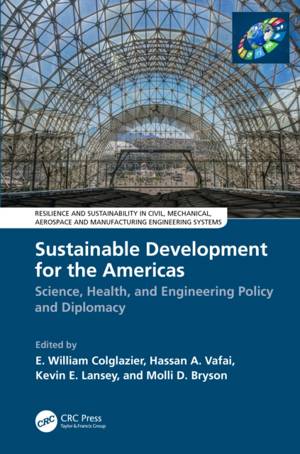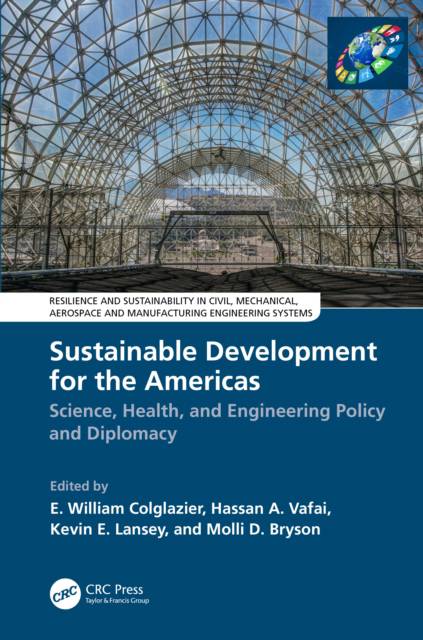
- Retrait gratuit dans votre magasin Club
- 7.000.000 titres dans notre catalogue
- Payer en toute sécurité
- Toujours un magasin près de chez vous
- Retrait gratuit dans votre magasin Club
- 7.000.000 titres dans notre catalogue
- Payer en toute sécurité
- Toujours un magasin près de chez vous
Sustainable Development for the Americas
Science, Health, and Engineering Policy and Diplomacy
Description
Environmental sustainability efforts require a great deal of engagement and political will, ranging from local communities to state departments. Science diplomats-from experts and scientists to spokespersons and ambassadors-can help facilitate at all levels and yield valued resources from technology sharing, capacity building, and knowledge exchanges. This book explores the importance of sustained international scientific cooperation, building community resilience, and the role of political will in sustainability and diplomacy. It shows how even small diplomatic efforts can influence myriad issues, from overfishing to human rights negotiations to global carbon emission reduction.
Features:
- Examines various topics such as global climate change, arid environments, water security and governance, trans-boundary conflict and cooperation, urban and rural resilience, and public health.
- Presents case studies from various geographic regions through the lens of diplomacy, including the US-Mexico border, the Gulf of California, South America, Europe, the Middle East, Central and South Asia, and China.
- Discusses how building networks of people, organizations, and countries engaged in science diplomacy is crucial for mutual growth and for overcoming conflicting political stances.
Sustainable Development for the Americas: Science, Health and Engineering Policy and Diplomacy
provides a useful resource for diplomats, policymakers, students, and decision-makers. It provides numerous examples of how using science and technology for policy and diplomacy is essential to finding common ground among nations for a collective global benefit.Spécifications
Parties prenantes
- Editeur:
Contenu
- Nombre de pages :
- 364
- Langue:
- Anglais
- Collection :
Caractéristiques
- EAN:
- 9781032115719
- Date de parution :
- 15-12-21
- Format:
- Livre relié
- Format numérique:
- Genaaid
- Dimensions :
- 156 mm x 234 mm
- Poids :
- 725 g






